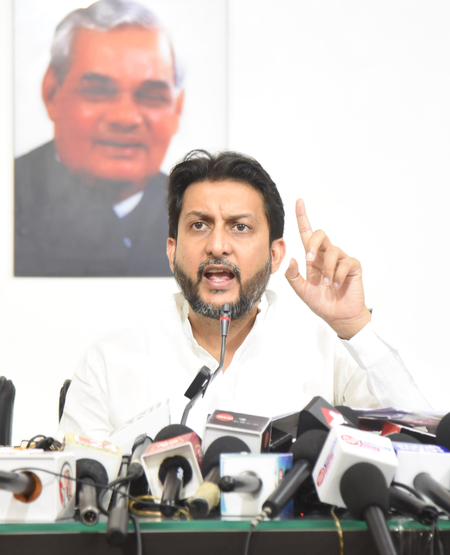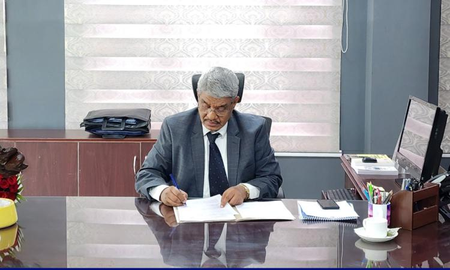
Bhopal, May 29 (IANS) Madhya Pradesh Chief Minister Mohan Yadav said on Thursday that his government is fully committed to realising the vision of ‘Vocal for local’ given by Prime Minister Narendra Modi.
The Chief Minister added that the idea given by the Prime Minister plays a significant role in preserving the country’s traditional handicrafts, folk arts, and cultural heritage.
It also empowers artisans by promoting self-reliance and independence through recognition of local products, he said.
Chief Minister Yadav made these remarks while addressing the inaugural event of the ‘Craftroutes’ Handicrafts Exhibition at Bhopal Haat, in the presence of Uttar Pradesh Governor Anandiben Patel.
He remarked that the Craftroutes exhibition is also a meaningful step in the direction of women empowerment, symbolising the beginning of this larger celebration.
“Handicrafts of different regions of the state have their own distinct identity and charm. Exhibitions like these help regional products gain wider recognition and provide artisans with opportunities to grow their businesses,” he added.
Chief Minister Yadav also emphasised the state government’s commitment to expanding industrial activities, from large-scale industries to cottage industries.
“Employment-generating industries are being given special encouragement in the state. Handicrafts can serve as an effective alternative to plastic, and support for such products is needed not just from governments and institutions, but also at the individual level,” the Chief Minister said.
While addressing this event, he also noted that the nation is celebrating the 300th birth anniversary of Ahilyabai Holkar, who is a shining example of women empowerment and self-reliance.
“It is a matter of pride for the people of Madhya Pradesh that Prime Minister Narendra Modi will grace the Women Empowerment Conference to be held in Bhopal on this occasion,” CM Yadav said.
–IANS
pd/khz






